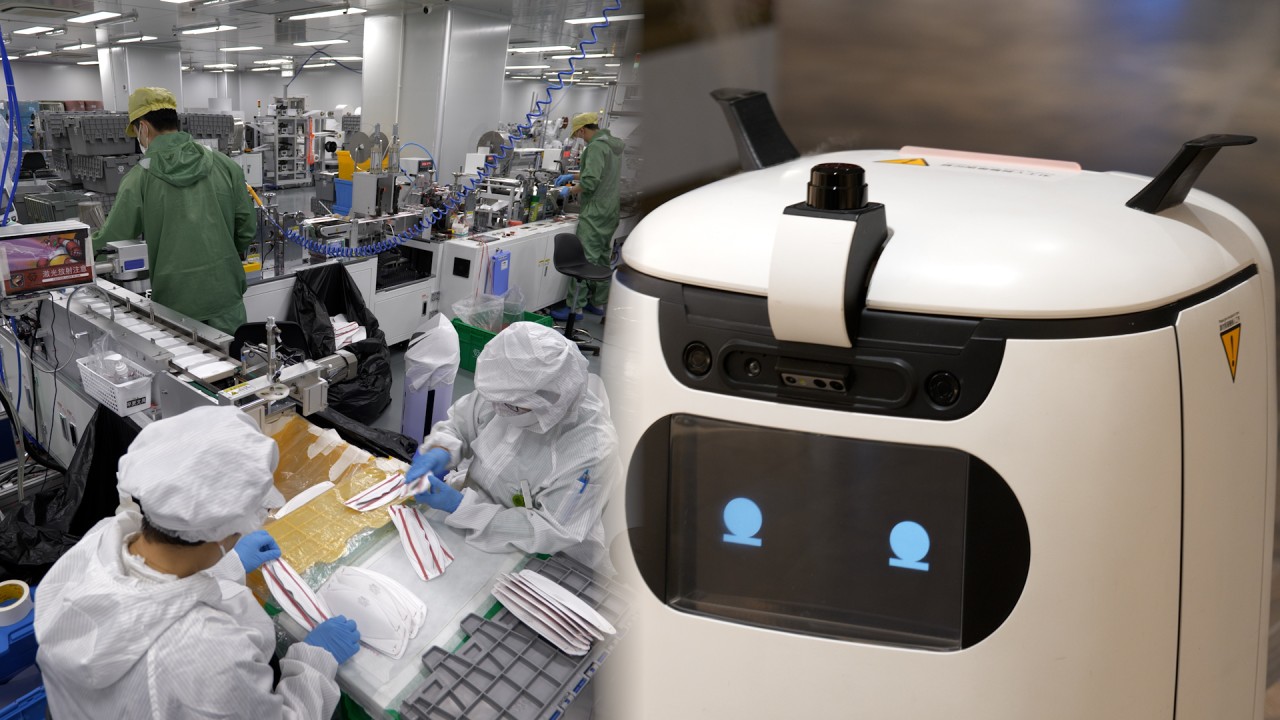
Spare a thought for the makers of masks and vaccines and the end of their Covid windfall
- Don’t forget the makers of PPE, hand sanitisers, Covid equipment and more. All will see the end of bonanza earnings and some may have to close down
- But governments will be happy to see the end of handouts
As most of us celebrate the end of Hong Kong’s mask mandate, we should perhaps spare a thought for the opportunists mourning the end of a nice little three-year earner.
In China, home to half the world’s face-mask production, the first five months of 2020 saw more than 70,000 new face-mask makers. Heaven knows how many remain but since then, tens of thousands of face-mask jobs must have been lost. Hopefully, the return to economic normality will bring new jobs in replacement.
Last January, research group Statista provided a fascinating glimpse into the face-mask wave that came and went. It calculates that in 2019, global face-mask sales amounted to 12.5 billion, mostly going to hospitals and people working in dusty environments like construction sites and interior decoration. In 2020, unit sales leapt 30-fold to 378.9 billion, then to 402.1 billion in 2021. Last year, sales wilted to 147.5 billion, and is this year expected to fall to around 20 billion.
Of course, pandemic opportunism has not been confined to face masks. Makers of disposable surgical gloves, disposable gowns and other personal protective equipment (PPE) have experienced a glorious surge in earnings over the three Covid-19 years, as have makers of hand sanitisers, Covid-testing equipment, and thermal imaging cameras.
It might be no bad thing if we sustain the weekend habit of biking on our mountain trails, or kayaking along the Sai Kung coastline, since it may have boosted local health and appreciation of Hong Kong’s rich wildlife. As someone who has for 20 years lived in and treasured Hong Kong’s great outdoors, I mourn the loss of peace and quiet and the damage to many country trails, but who am I to be so selfish?
Perhaps the biggest pandemic bonanza of all has fallen to the pharmaceutical giants that supplied our vaccines.
Among the most enthusiastic celebrants of the end of the Covid economy will be our governments. The International Monetary Fund recently estimated that the global pandemic cost through 2024 will rise above US$12.5 trillion, including the costs of pandemic protection and economic dislocation.
Beijing estimated last year that it would spend around US$52 billion in 2022 on testing, vaccines and anti-epidemic facilities like the 300 or so makeshift hospitals used for quarantine.
The fund has also covered the cost of at least 25 subsidy schemes. These range from lunchbox providers to around 900 schools, support to 66 mahjong and tin kau (a Chinese gambling game) venues and 11,000 beauty and massage parlours. They include support to 10,000 registered sports coaches, 60 cinemas, 550 childcare centres and 3,000 school bus drivers.
While Financial Secretary Paul Chan Mo-po will be happy to see the end of these handouts, one has to wonder how quickly or easily the government will succeed in weaning many in our population off this pandemic-induced government dependency.
But as the lifting of the mask mandate at last enables us to begin the return to normalcy, this will hopefully be a small concern. The pandemic opportunity appeared out of nowhere, and massive windfall profits were captured by the lucky first movers. Now those opportunists have to move on, seeking windfalls elsewhere.
Envy them if you will, but I, for one, am just relieved for life at last to be returning to normal.
David Dodwell is CEO of the trade policy and international relations consultancy Strategic Access, focused on developments and challenges facing the Asia-Pacific over the past four decades



